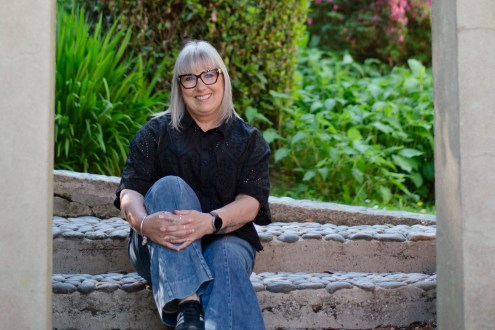The sibling bond
We all know that our parents shape our personalities, but, says psychologist Dorothy Rowe, we often overlook how much our identity is influenced by our siblings

A sibling bond may be warm and loving, but often they’re made up of equal parts of affection and irritation, even anger and rivalry. Sometimes we feel nothing but hatred, or resentment. Yet they have an enormous influence on whom we become.
Despite this, we still find our siblings endlessly fascinating. I’ve seen 18-month-old May, the youngest of four, on a cold morning and dressed only in a nappy, crawl across a freezing patio to reach her playing siblings. Sometimes they played with her and made a fuss of her, at others they ignored her or yelled at her if she touched their toys.
Like an inveterate gambler, May lived in hope that her siblings would reward her. Their mixture of rewards and punishments led May to form the strongest kind of attachment, what psychologists call anxious attachment; a varying mixture of love and fear. This anxiety stems from the knowledge that our siblings have a unique power over us. More than anyone else, they know us well enough to know what will hurt us the most. Only a sibling knows innately how to trigger that sick, panicked feeling we experience when we’ve been humiliated, rejected or betrayed.
Threatened with being annihilated as a person, we defend ourselves. We may deflect the attack, perhaps by forming an alliance with a parent or another sibling.
We might use our position in the family to our advantage. As the oldest child, we can claim to be in charge. As the youngest we can demand to be looked after. We also learn other ways of gaining attention, or affection or admiration. We might become the drama queen, or the one who cossets the others. When a ploy works, we use it again and again, until it becomes part of us, something we do without thinking.
It’s these habits and skills that we carry into adult life and use unthinkingly in our relationships.
Not all siblings defend themselves by carving out a separate role for themselves. Instead, some siblings become extremely close, almost inseparable, forming an impenetrable bond. For example, when siblings discover that their parents are so absorbed in themselves that they have little interest in their children, the children cling together. The danger here is that we may not experience a sense of ourselves as an individual, and our closeness may prevent us from forming other strong relationships.
Alternatively, children may adapt to the roles their parents give them. A hard-pressed mother may reward her oldest child for taking responsibility in looking after the younger children. The last-born can find himself treated as the baby of the family. These roles can continue to bring benefits as well as burdens later in life. Think about why you haven’t moved on from your family role. Perhaps you find some rewards in the situation, or you prefer to keep up a pretence that everything is fine rather than speak truthfully and provoke a terrible scene. Perhaps you haven’t given these things much thought, because the prospect of change is frightening.
Try stepping away from your old sibling roles and re-evaluating how helpful they are to you now. As adults, we can learn to recognise when we’re reacting to others the way we respond to our siblings, and can adjust that behaviour.
But when we’re with our siblings, we can still find ourselves behaving just as we did when we were children. This is partly because siblings’ memories differ. Memory isn’t a filing cabinet. It’s a construction. We try to construct the kind of memories with which we can live. Sometimes a family trauma can create an opportunity to renew our relationship. Sometimes siblings are able to put aside their differences and become friends by talking.
How to encourage sibling bonding
To encourage sibling bonding you need to start the conversation by telling your brother or sister about your affection for them. You need to make clear from the outset that you want to have a conversation different from all those you’ve had in the past.
Have the courage to put yourself in a vulnerable position, and, if you fail, comfort yourself with the thought that at least you’ve tried. Chances are you’ll find that your siblings, like you, want to know the joy of sharing a long history with a dearest friend.









